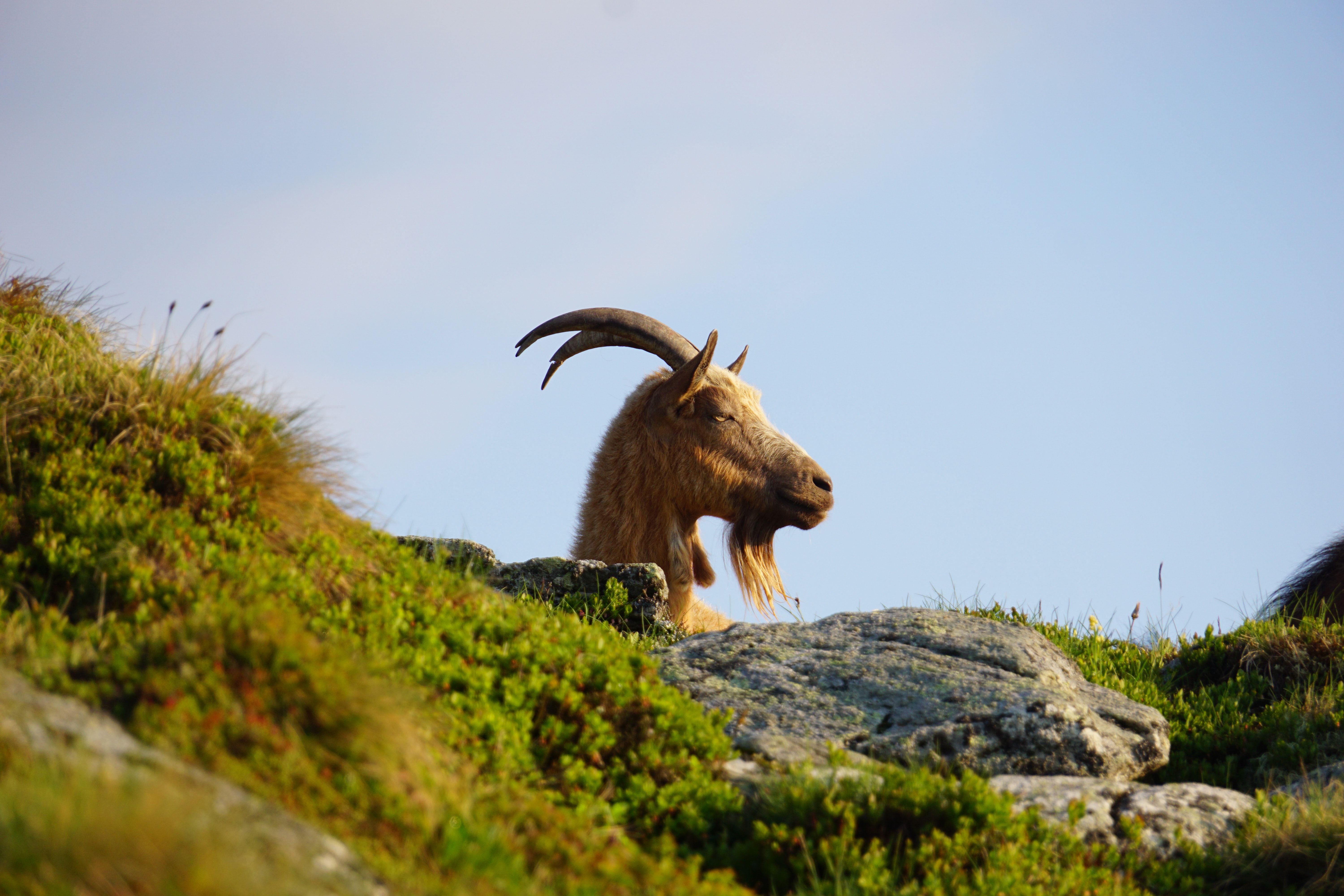In the middle of the heatwave we slaughter the goats. We hold the animals down, knees pressed to their shoulders, fingers keeping the heads still. We spike the sticking knives through their necks, behind their jawbones, quieting their bleating. Blood seeps into the dry dirt. Goat eyes blink to glass. We show our sons how to gut the insides, scoop out the hearts and livers, remove the kidneys and the layers of white fat. They watch us run skinning knives from the animals’ ankles to the anuses, across bellies to the thickly muscled necks. We tug off the hides, angle our blades against the fatty flesh. When we hack off the goat heads, our sons ask questions about goat-spirits, about the disappearance of their mothers. The women had left us when the heatwave began. At dusk, they had buried their heartjars in the earth and walked away. A line of women, mothers and wives, drifted through the valley. They sacrificed themselves for the men and boys, for the warriors left among us. Our sons ask for details, ask what heartjars are, ask if we’re telling the truth or if their mothers abandoned us all. We slap goat hocks against our boys’ chests, order them to carry the meat to the fire. Dark blood stains the boys’ skin. Ages them. They skewer the veined slabs on long iron rods, stake the goat remains vertically all around the firepit. They watch the meat, turn it periodically, shout to us when the flesh is charred. Then we descend upon the firepit. We devour hunks of goat. We feel the charge of vitality, of goat-spirits inside us. Our boys circle away from the firepit, dig up the earth, hunting for the heartjars. The night’s bruised light halts their search, and the boys migrate to the valley, follow the footprints their mothers left behind.
Father’s Day
About the Author
Christopher Linforth has recently published fiction in Epiphany, Grain, Fiction International, Notre Dame Review, Day One, and Descant, among other magazines. He has been awarded fellowships and scholarships to the Sewanee Writers’ Conference, Vermont Studio Center, and the Virginia Center for the Creative Arts.
